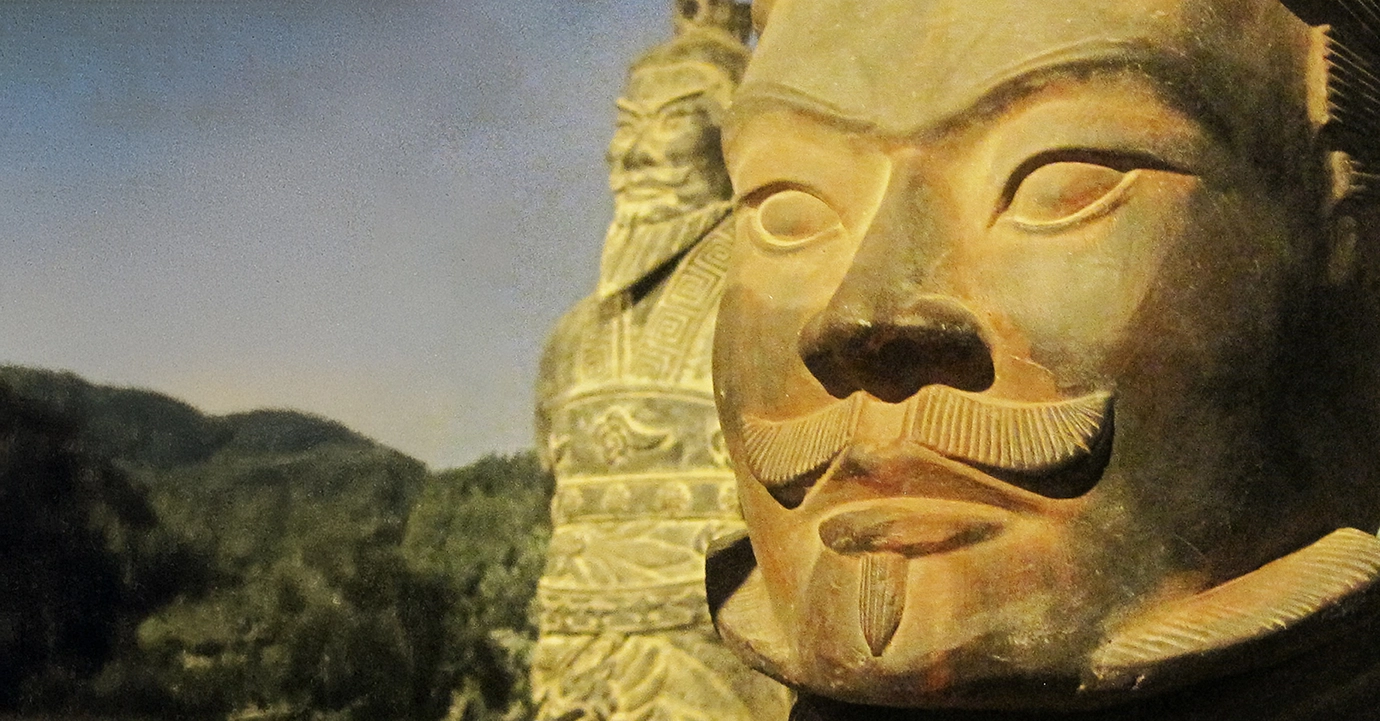China’s Military Courts Gain Power†
Table of Contents
- China’s Military Courts
- New Rules Expanding the Jurisdiction of Military Courts
- Challenges Facing Civilians
Estimated Reading Time
- 7 min

(Publicdomainpictures.net)
While the world was paying attention to Chinese troops’ participation in Russia’s Victory Day parade held at the Red Square on May 9, a new set of rules authorizing China’s military courts to exclusively handle more cases seems to have gone unnoticed. As the impact of these new rules is likely to be substantial, they should be better understood.
China’s Military Courts
China’s court system consists of the Supreme People’s Court, people’s courts at various levels—“high”, “intermediate”, and “basic” levels—in local areas, and “specialized people’s courts”. “Specialized people’s courts” consist of military courts and other courts specializing in certain subject matters such as maritime courts and intellectual property courts (see, e.g., Beijing Intellectual Property Court).
There are three levels—“high”, “intermediate”, and “basic”—of military courts in China. At the “high level” is the Military Court of the People’s Liberation Army of China (“PLA Military Court”), while, for example, military courts of specifically defined “military regions” and military courts for the military corps in the military regions are at the “intermediate level” and “basic level”, respectively.
“This strong connection with the ruling party’s Central Military Commission provides important context for understanding the implications of any rules defining the jurisdiction of military courts.”
When conducting its adjudication work, the PLA Military Court is, like other courts in China, subject to the supervision of the Supreme People’s Court. However, in terms of its organizational structure, the PLA Military Court as a unit lies directly under the Political and Legal Affairs Commission of the Chinese Communist Party’s Central Military Commission. This strong connection with the ruling party’s Central Military Commission provides important context for understanding the implications of any rules defining the jurisdiction of military courts.
New Rules Expanding the Jurisdiction of Military Courts
In April 2025, the Supreme People’s Court issued the Provisions on Several Issues Concerning the Jurisdiction of Military Courts over Civil Cases (effective as of May 1, 2025) (“New Provisions”), superseding a similar set of rules that had remained unchanged since its issuance in 2012, other than a minor revision in 2020 to update the number of a legal provision referenced therein (“Old Provisions”). According to the Supreme People’s Court, the New Provisions was issued to “provide more powerful judicial services and safeguards for strengthening the military in the new era” by, inter alia, “taking a further step to strengthen the protection, in accordance with law, of national defense interests and legal rights and interests of military personnel and their families”.
The most important change introduced by the New Provisions is that eight categories of civil cases are now subject to the exclusive jurisdiction of military courts, compared with four categories in the Old Provisions (see Article 1 of the New Provisions as compared with Article 1 of the Old Provisions). Among the four categories included in the Old Provisions were “cases where both parties are military personnel or military units, except as otherwise provided by law” and “cases involving military secrets at or above the confidential level”. In the New Provisions, these two categories are more broadly expressed: “cases where both parties are military personnel or military units” (i.e., without any exceptions) and “cases where the main evidence for determining the basic facts of the cases involves military secrets” (i.e., including, arguably, military secrets that have not been formally classified as “confidential”).
Among the four new categories of civil cases added to the New Provisions to give military courts exclusive jurisdiction over these cases are “cases applying for declaration that the military personnel are missing or dead”. Such a declaration is a prerequisite for authorities to issue related subsidies and benefits to the families of the missing or dead military personnel. Under the Old Provisions, local people’s courts were also allowed to handle these cases. The change in the New Provisions is, in effect, a response to critics urging that only military courts be allowed to handle these cases, on the grounds that the disappearance or deaths of military personnel often occur during confidential military operations.
Challenges Facing Civilians
An encouraging improvement is reflected in Article 2 of the New Provisions. Article 2 of the Old Provisions stated:
In [any of] the following civil cases, if a local party files a lawsuit or an application with a military court [in the locality], the military court should accept the case:
(1) […];
(2) […];
(3) […];
(4) cases in which the immovable property […] as provided for in Article 33 of the Civil Procedures Law is located within the military camp, and one of the parties is military personnel or a military unit;
(5) […];
(6) […];
[emphasis added]
“The lack of such explicit reference led some local people’s courts to avoid handling cases perceived to be sensitive.”
The above provision did not explicitly state that local people’s courts also have jurisdiction over the cases listed under the provision. The lack of such explicit reference led some local people’s courts to avoid handling cases perceived to be sensitive.
A lawsuit brought by a construction company in a district court located in Lanzhou City, Gansu Province (“Lanzhou Court”), against a local military unit illustrates such avoidance. In that case, the construction company and the military unit had signed a contract, under which the company agreed to build barracks within the camp overseen by the military unit. The company alleged that it had completed the barracks in accordance with the contract but the miliary unit failed to pay the agreed amount. The company requested that the Lanzhou Court order the military unit, the defendant, to pay the company approximately RMB 8.2 million as compensation to cover the agreed amount for the construction, related interest, and litigation expenses incurred. On March 7, 2025, the Lanzhou Court ruled to conclude that it had no jurisdiction over the case. Based on Article 2 of the Old Provisions, specifically Item (4), the Lanzhou Court held that because the barracks at issue were immovable property located within the military camp, it had no jurisdiction and the construction company should take the case to a military court.
It is likely that the Lanzhou Court perceived the above case as sensitive and that the judges involved had concerns about potential retribution if they ruled against the military unit. In fact, according to the court’s written ruling, the defendant, the military unit, did not even reply to the construction company’s allegations.
Should a similar dispute occur now, no local people’s courts could rely on Article 2 of the New Provisions to avoid handling the dispute. This is because under the New Provisions, Article 2 begins with a clear sentence: “The following civil cases are under the jurisdiction of both the relevant military courts and the local people’s courts.”
This change is welcome. Yet, if a local people’s court is determined to avoid handling a sensitive case involving military personnel or a military unit, the local people’s court can easily resort to Article 1 of the New Provisions and state that it has no jurisdiction, on the grounds that “the main evidence for determining the basic facts of the case involves military secrets”. For example, in a case like the one encountered by the Lanzhou Court, a local people’s court may avoid handling the case by, for example, concluding that the construction of barracks involves detailed descriptions of the barracks and the camp site, all of which are military secrets.
The Supreme People’s Court has committed to releasing more decided cases in the future to provide guidance on how the New Provisions should be applied. Such guidance should be provided without any delay, or the rights and interests of civilians dealing with military personnel and military units—such as the construction company mentioned above—could be compromised.
- The citation of this article is: The Editorial Board of SINOTALKS®, China’s Military Courts Gain Power, SINOTALKS.COM®, SinoExpress™, May 14, 2025, https://sinotalks.com/sinoexpress/military-court-china. ↩︎





